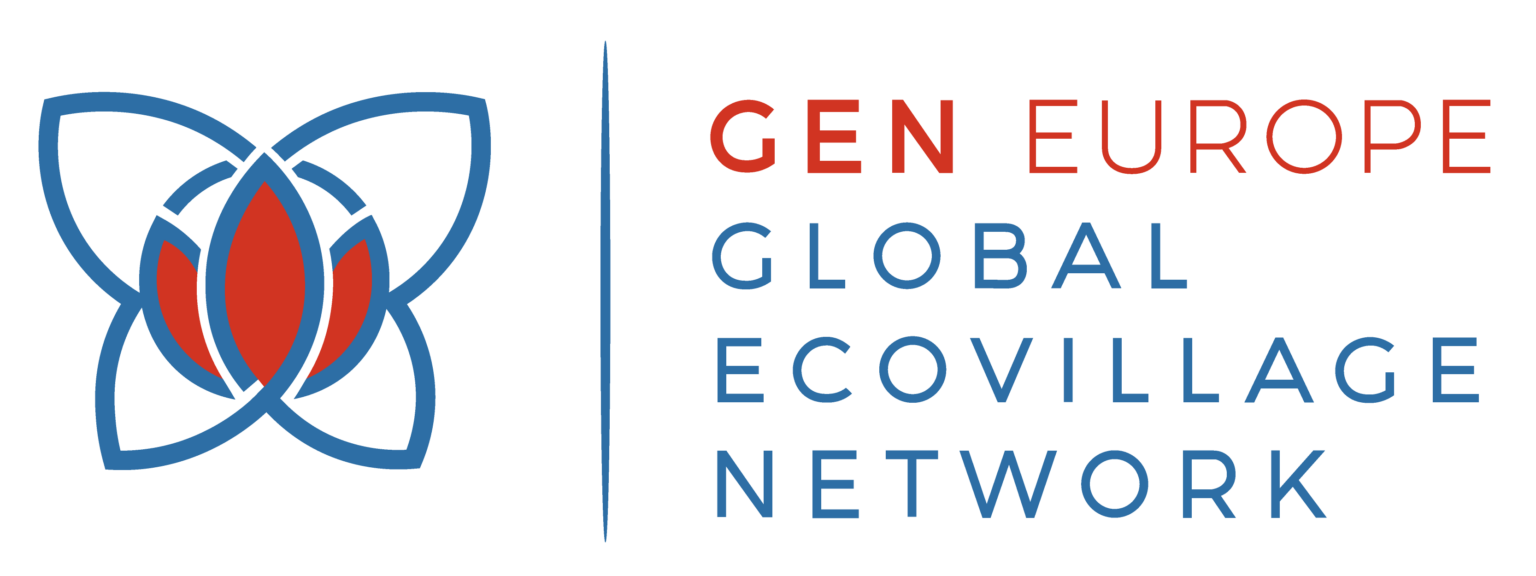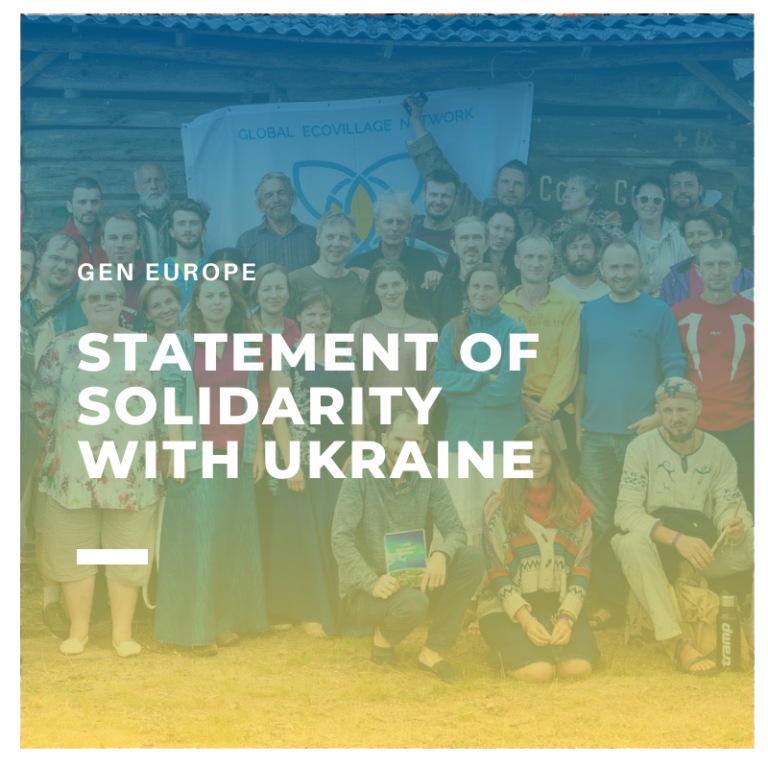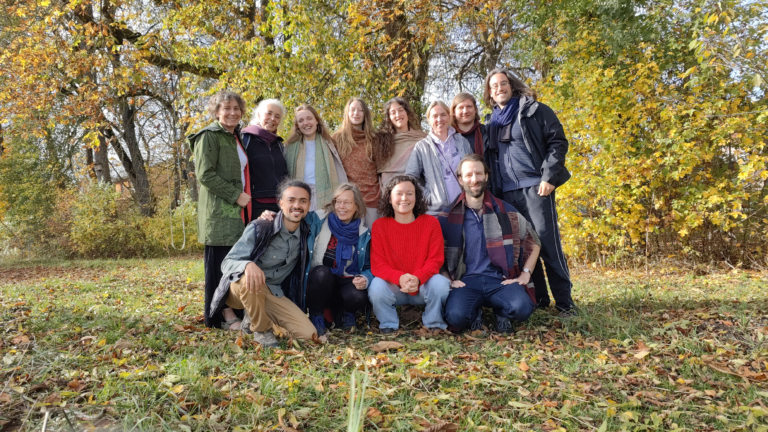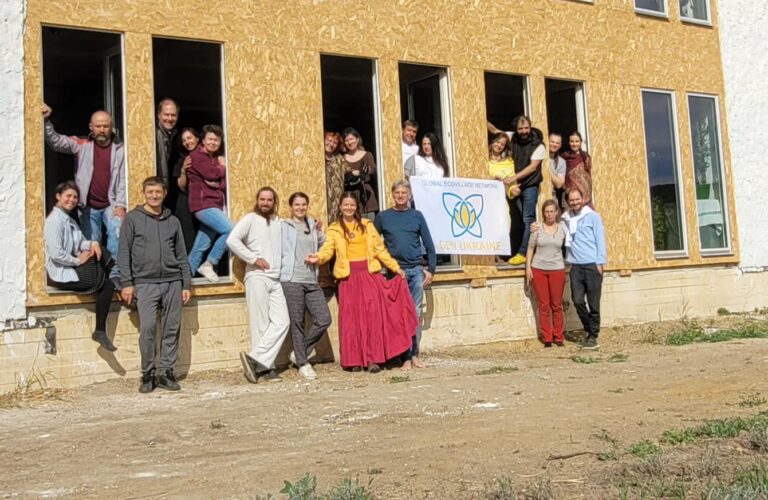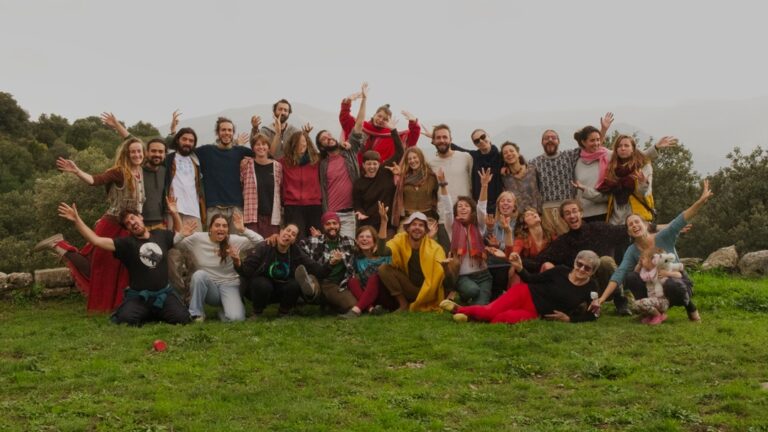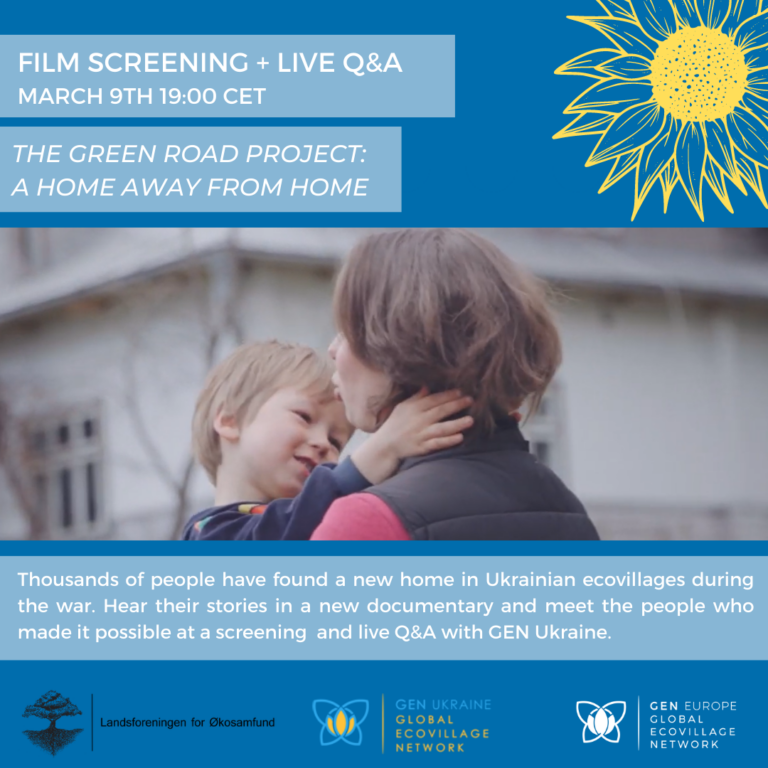Choosing the future with Erasmus+
Participants of the project ‘Networking for Sustainability and a Green Youth’ have by now completed and submitted their first international youth projects aimed at sustainable development within the framework of the new 2021-2027 Erasmus+ program. The training itself took place at the Ängsbacka Course and Festival Centre in southern Sweden from April 7 to 12 with the financial support of the European Union Erasmus+ program. The 5-day training was attended by 35 people from 10 EU countries: Bulgaria, Germany, Holland, Greece, Italy, Spain, Slovakia, France, Sweden and Estonia.
Ängsbacka is a Course and Festival Center for personal and spiritual growth located in the beautiful deep forests of Värmland, Sweden. Ängsbacka supports people in their paths to sustainable development, well-being and harmony. For over 20 years Ängsbacka served as an internationally renowned source of inspiration and meeting place where tens of thousands of people have participated in events, courses and volunteering programs.
The training was organized for representatives of eco-movements, ecovillages and eco-centers that work for a healthy environment, support various methods of sustainable development, study and teach the skills of regenerative agriculture – and are active in the youth sector, as well as youth work organisations that engage in the field of sustainability.
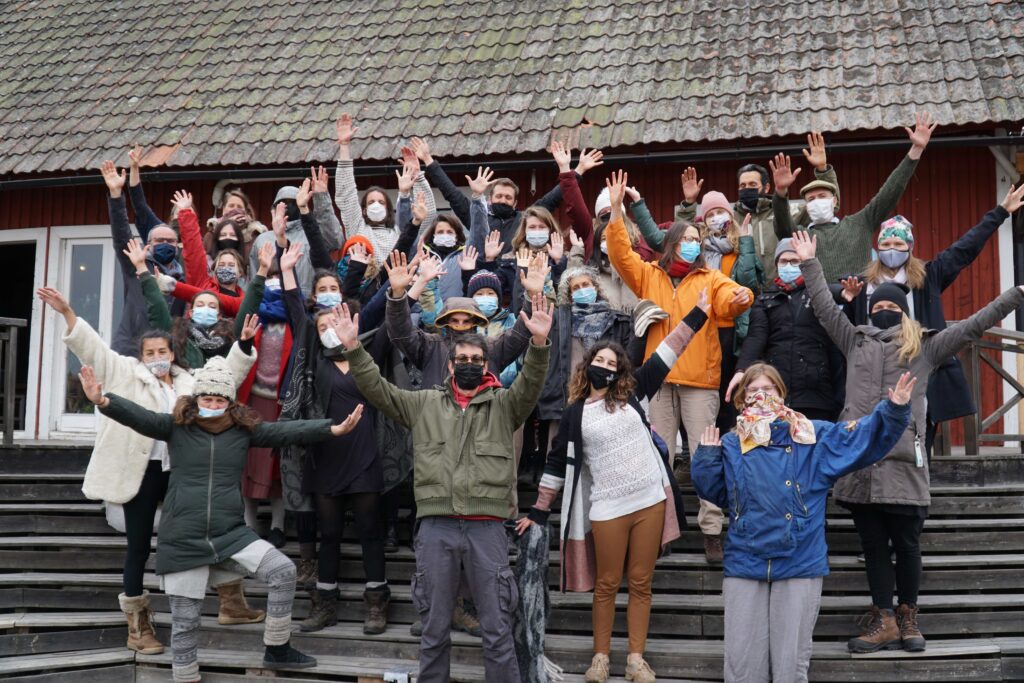
What is Erasmus+ ?
Erasmus+ is the educational, training, youth and sports program of the European Union. The current program budget for 2021-2027 is 26.2 billion euros, which is almost double the previous period, which lasted from 2014 to 2020.
In the current period, the Erasmus+ program prioritizes social inclusion, green practices and the fight against climate change, digitalization, as well as the participation of young people in promoting democratic values. Erasmus+ offers opportunities for mobility and cooperation in the field of preschool, school, higher and vocational education, training, adult education, youth and sports. The activities in the youth sector, which was the focus of this project, can be aimed at both young people and specialists working with young people.
The participants had an in-depth exchange about project ideas, and teams formed that carry forward several project ideas that were conceived during the training, most of them international with partners they met at the training. The teams are continuing to work on their projects online, and we already look forward to them (hopefully!) being chosen for funding and being implemented so we can continue the fruitful collaboration that was initiated during the event.
Training in the midst of covid-19
Despite the coronavirus crisis, life goes on, people meet, projects are written. Organizing a face-to-face meeting of 35 people from ten countries, in the midst of the pandemic restrictions, has been an extra challenge, but doable. Travel was more difficult to organise than usual due to a more limited amount of connections and seats available and participants had to plan for testing before arrival and before departure. Ängsbacka Course and Festival Centre, due to the educational activities they run, had clear and comprehensive hygiene and safety measures in place.
Practical benefits
The training participants are united by concern for the future, the desire for harmony with nature and the desire to pass on their knowledge to others. Today, as they can and know how, they lay and strengthen the foundation of sustainable development in their own fields. Technologies can serve humanity and nature and we all need to apply them more wisely for a better world.
The training helped us not only to initiate youth projects within the framework of Erasmus+, but promoted discussing our ideas and finding partners among the various organizations present.
A lot of inspiration resulted from the presentations of the work of the different organisations and the vivid exchange on a large number of topics and project ideas. The networking aspect was most valued by all participants, and many connections were established that have the potential to support future projects for a long time to come.
By Tatjana Lavrova and Ulrike Schimmel
